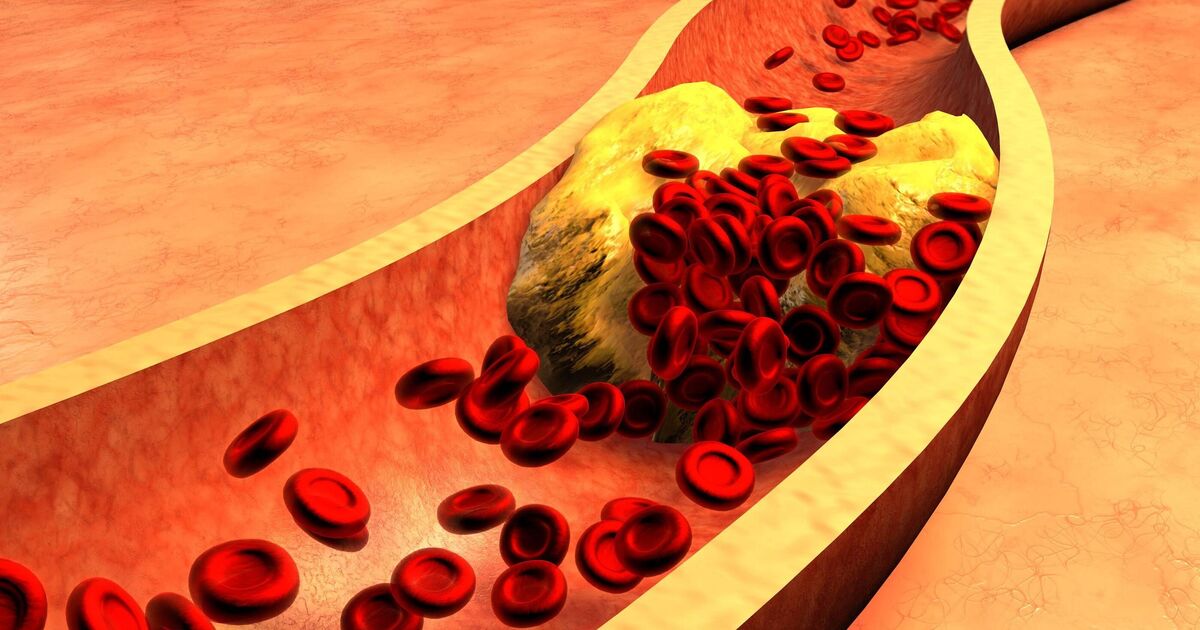Cardiac specialists have devised a seven-day meal plan aimed at lowering high cholesterol – potentially reducing your need for statins. The medication, which must be prescribed by a doctor, is designed to reduce cholesterol levels and decrease the risk of heart disease and stroke.
Cholesterol is a fatty substance present in blood and cells. While it’s essential for normal bodily functions – including forming protective layers around cell membranes and producing hormones, vitamin D, and compounds that assist digestion – an excess can heighten the risk of heart disease. It is crucial i
Cholesterol is transported through your blood by lipoproteins, particles composed of fat and protein. There are two primary types of lipoproteins – low-density lipoprotein (LDL), often referred to as ‘bad’ cholesterol, and high-density lipoprotein (HDL), sometimes known as ‘good’ cholesterol.
When cholesterol levels are elevated, plaque accumulates in the arteries. This buildup, known as atherosclerosis, can lead to heart complications, including blood clots, angina, coronary artery disease, and restricted blood flow, reports Surrey Live.
If your risk is relatively low, you probably won’t need a statin unless your LDL levels exceed 190 mg/dL (4.92 mmol/L). However, if your risk is significantly high, such as having had a heart attack before, statin could be beneficial even if your cholesterol levels aren’t raised.
There’s no quick fix for reducing cholesterol levels. It’s not as simple as relying on a single food or meal to make an impact.
Some people may require medication to manage their high cholesterol. In contrast, others might find that lifestyle changes can help lower cholesterol levels and potentially reduce the need for medical treatments like statins. While statins are often used to control cholesterol, there are other effective methods too.
The best treatment for high cholesterol depends on various factors, and doctors will consider elements such as family medical history, risk of heart disease, and lifestyle choices when prescribing medication. The NHS advises: “If you’re at risk of developing cardiovascular disease (CVD) in the near future, your doctor will usually recommend lifestyle changes to reduce this risk before they suggest that you take statins.”
However, if these measures prove ineffective, statins may be recommended. Maintaining heart health involves consistently choosing heart-friendly foods and focusing on the overall quality of your diet. Heart Foundation experts have shared a seven-day cholesterol-lowering meal plan with ideas for breakfast, lunch, and dinner that can be tailored to individual needs and preferences.
| |
Breakfast | Lunch | Dinner |
| Day one |
|
||
| Day two |
Basic bircher muesli topped with nuts or seeds |
Wholemeal pita with salad or cooked vegetables, hummus, and a choice of cooked lean meat, canned tuna or four-bean mix |
|
|
Day three |
Porridge topped with plain yoghurt, seasonal fruit, nuts and seeds |
||
|
Day four |
Wholegrain toast with avocado, tomato and sesame seeds |
|
|
|
Day five |
Natural muesli with plain yoghurt, seasonal fruit and sunflower seeds |
|
|
|
Day six |
|
Chilli mince and beans served in lettuce cups, wholemeal wraps or on top of brown rice |
|
|
Day seven |
Cooked mushrooms, spinach and tomatoes on wholegrain toast |
Quick toastie quesadillas with avocado salsa |
|
The meals are designed to help lower cholesterol. They feature an abundance of fruits and vegetables, whole grains such as oats and barley, plant-based proteins like beans and chickpeas, and healthy fats from sources like avocados, nuts, and seeds. These ingredients are rich in fibre, heart-friendly fats, and various nutrients that support cardiovascular health.
For snacks, avoid processed and packaged foods. Opt for whole foods like fruit, plain yoghurt, nuts, and seeds. You could also prepare slices of carrot or cucumber to dip into hummus or roast chickpeas for a crunchier option.
To keep ‘bad’ cholesterol levels in check, increasing your intake of soluble fibre found in foods like oats, beans, apples, and pears is crucial. Choose lean proteins such as fish, chicken, and tofu over fatty meats.
Be aware of the saturated and trans fats often in processed foods, red meat, and butter. Incorporate healthy fats from sources like avocados and nuts in moderation, and opt for whole grains over refined carbohydrates. Aim to engage in at least 30 minutes of moderate exercise most days, and consider adding strength training to boost muscle mass.
Always consult your doctor about your cholesterol levels and any lifestyle changes you’re contemplating to ensure you adopt the best strategy for your circumstances. Regularly monitor your cholesterol to see how your lifestyle modifications are impacting your levels.
While certain supplements, such as fish oil, may offer benefits, seeking medical advice before starting any supplement regimen for managing cholesterol is essential. If you decide to tackle your cholesterol through diet and lifestyle changes first, be prepared to stick with it until your cholesterol levels decrease, and then maintain these changes to avoid needing medical treatment.
Natural solutions such as psyllium, artichoke extract, oat bran, garlic and barley can aid in reducing cholesterol levels. However, these should be used to supplement lifestyle modifications, not substitute them. You can seamlessly integrate these remedies into your diet with your doctor’s approval. It’s crucial to continue taking any medications prescribed by your healthcare professional.










